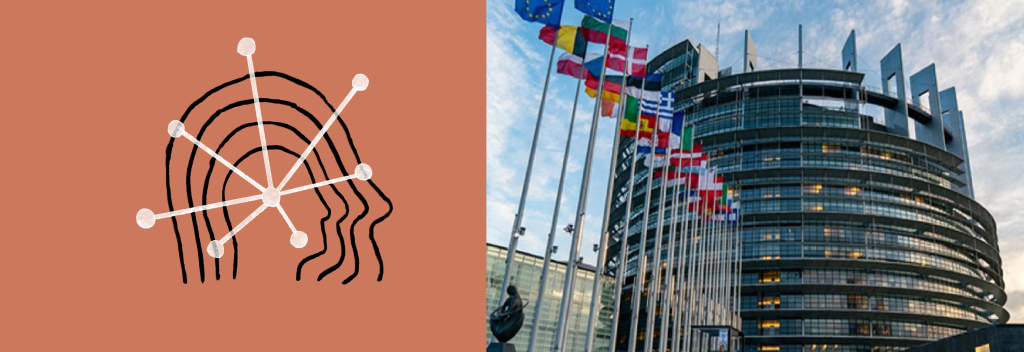The European Parliament has taken a significant leap towards enhancing transparency and accessibility with the launch of its innovative AI assistant, Archibot, powered by Anthropic’s Claude. This groundbreaking initiative, dubbed ‘Ask the EP Archives,’ aims to make over 2.1 million official documents easily available to researchers, policymakers, educators, and the public, marking a pivotal moment in how democratic history is preserved and accessed.
A Glimpse into the Archives
The Archives Unit of the European Parliament has been diligently working to preserve and manage a vast collection of documents dating back to 1952. For years, archivists faced challenges in making this wealth of information easily searchable and accessible to the public. The traditional methods of navigating these archives often involved painstaking searches through physical documents, which could take weeks. However, with the advent of generative AI, the game has changed.

Archibot enables users to access a wide array of EU Parliament documents, including resolutions, positions, policies, and inter-institutional negotiations. This tool not only streamlines the process but also enhances the ability to analyze data and compile reports, making it an invaluable resource for anyone interested in European parliamentary history.
Key Features of Archibot
Archibot is packed with features designed to optimize the user experience:
- Advanced Search and Summarization: Users can now navigate vast amounts of information quickly and efficiently. The AI’s ability to synthesize complex data into digestible summaries is a game-changer for researchers and policymakers alike.
- Report Building: The assistant allows users to extrapolate relevant information and construct comprehensive reports in a matter of seconds, drastically reducing the time needed for archival research.
- Multilingual Capabilities: Archibot supports multiple languages, ensuring that users from all EU member states can access information in their preferred language. This commitment to inclusivity is crucial in a multilingual union.
- Global Accessibility: Available to users worldwide through the European Parliament’s website, Archibot breaks down geographical barriers, making the archives more accessible than ever.
- Constitutional AI: Archibot is designed with trustworthiness and controlled use of AI technology in mind, ensuring that the information provided is reliable and aligned with institutional standards.
The Impact of Archibot
Since its launch, Archibot has demonstrated substantial benefits:
- Efficiency Boost: The tool has reportedly reduced document search and analysis time by 80%. What once took days or weeks can now be accomplished in mere seconds, significantly enhancing productivity for researchers and policymakers.
- Enhanced Access to Historical Context: Quick access to historical documents provides vital context for current policymaking, allowing for more informed decisions based on precedent.
- Educational Resource: Archibot has become an essential tool for hundreds of educators and students, offering an all-access window into European parliamentary history. This democratization of knowledge supports a more informed citizenry, essential for a functioning democracy.
The implementation of Claude 3.5, one of the most advanced large language models available, has been pivotal in this transformation. Anthropic has been proactive in rolling out safe and responsible generative AI technologies across Europe, including mobile accessibility through iOS and Android apps. This broad reach ensures that AI’s benefits extend to everyday users, not just specialized researchers.
Prospects for AI in Governance
The launch of Archibot is just the beginning of what generative AI can achieve in the realm of governance. As we look to the future, several prospects emerge:
- Increased Transparency: Archibot sets a precedent for how AI can be utilized to enhance governmental transparency. By making archival documents easily accessible, citizens can engage more meaningfully with their democratic institutions.
- Enhanced Public Services: AI technologies can be deployed in various government sectors to streamline services, from tax filing to public health. The ability to analyze large datasets rapidly can lead to more responsive and informed public policy.
- Global Adoption: The success of Archibot could inspire similar projects in cities, states, and countries around the world. As governments seek to restore public trust, leveraging AI for transparency will likely become a global trend.
- Improving Civic Engagement: By making governmental processes more transparent, Archibot could foster greater civic engagement. When citizens can easily access information about their representatives and legislative processes, they are more likely to participate in democratic practices.
- Continued Evolution of AI Technology: As generative AI continues to evolve, we can expect even more sophisticated applications that enhance user experiences and outcomes. Future iterations of tools like Archibot may integrate advanced analytics and predictive capabilities, providing even deeper insights into legislative trends and implications.

The launch of Archibot represents a transformative moment for the European Parliament and a potential blueprint for governments worldwide. By harnessing the power of generative AI, institutions can not only enhance access to historical records but also foster greater transparency, efficiency, and citizen engagement. As we continue to explore the intersection of technology and governance, Archibot stands as a testament to what is possible when innovation meets the public interest.
With initiatives like this, the future looks promising for the intersection of AI and democracy, paving the way for more informed, engaged, and empowered citizens. The hope is that Archibot is merely the first of many such advancements that will redefine our relationship with democratic institutions across the globe.
Copyright©dhaka.ai
tags: Artificial Intelligence, Ai, Dhaka Ai, Ai In Bangladesh, Ai In Dhaka, Future of AI, Artificial Intelligence in Bangladesh, Anthropic



